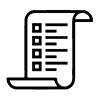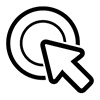Steps for Submitting Your Proposal
All ELI Annual Meeting sessions will be conducted face-to-face in the meeting venue. Please take a moment to view this 5-minute video on how to write an effective proposal. Have questions about the CFP online form and what information is required? Please take a look at this call for proposals online submission overview below.

Step 1: Proposal Presenters
Add presenter information to the submission

Step 2: Abstract and Session Details
Enter your session abstract and description, description of engagement strategies, session type selection, session track selection, and session title.

Step 3: Session Learning Objectives
Provide three learning objectives that are clear, measurable, and achievable

Step 4: Terms and Conditions
Read and sign the ELI Publishing Permission Agreement
Achieving Student Success through New Models of Learning
Student success is a multidimensional concept, bringing together a variety of campus endeavors and aspirations. It entails collaborative teams of instructional designers, technologists, and faculty devising new course models and learning engagements; includes ways of harnessing technology and data to better advise students and to initiate the interventions needed for increased student success; and involves reshaping our learning environments, both virtual and physical, as well as adopting transformational practices and emerging technologies and evaluating their impact. Engage with your colleagues in discussions centering on these and the many additional dimensions of student success. Together, we’ll explore these and other questions:
- How can we best engage our faculty and instructors, enabling them to innovate and discover successful approaches to support learners?
- What new kinds of leadership are required for teaching and learning to support student success?
- How do we rearchitect our learning environments to meet the needs of students and educators?
- How can we best harness our learning data to inform our practice, while maintaining privacy?
- What emerging technologies are best suited to enable progress toward increased student success?
2018 Annual Meeting Tracks
The 2017 ELI Key Issues, as voted on by over 930 community members, served as the basis for the thematic 2018 annual meeting tracks. We have synthesized the top key issues to form the set of thematic tracks listed below. Proposals that address one or more of these tracks will receive highest priority:
- Faculty development and engagement
- Online, blended, and hybrid learning models
- Leadership and academic transformation
- Learning environments and spaces
- Emerging learning technology and practices
- Analytics: privacy, learning data, student advising, and interventions
- What works: impact evaluation, learning research, and learning science
- Accessibility and universal design for learning (UDL)
- Other
Learning Objectives and Participant Engagement Strategies
The ELI proposal reviewers will closely examine and rate each proposed session's learning objectives, which should clearly describe what participants will know or be able to do as a result of participating in the session. A successful proposal must also include the specific and creative ways in which the presenter(s) will engage with participants through active learning strategies. The ELI encourages innovative and participatory session design, the creative use of technology, and active engagement by all participants.
Session Types
All ELI Annual Meeting sessions will be conducted face-to-face in the meeting venue. Please take a moment to view this 5-minute video on how to write an effective proposal.
Preconference Seminars
Preconference seminars will be held Monday, January 29, from 8:00 to 11:00 a.m. (CT), face-to-face, in New Orleans, Louisiana. Participants pay an additional fee to attend preconference seminars. Each seminar presenter (maximum of two) will be provided with a full complimentary registration to the annual meeting. If you have questions, please contact the speaker liaison.
Presentation Sessions
Please note that your presentation session proposal will be carefully evaluated and may be accepted for any of the following formats below, depending on the scope of content and engagement strategies proposed. If you have questions, please contact the speaker liaison.
- Interactive Presentation: These sessions include 30 minutes of presentation time only and 15 minutes for audience engagement/interaction, for a total of 45 minutes. Interactive presentations are opportunities to present in detail on a project while enabling audience participation.
- Short Presentation Pairs: Presentation pairings include two 15-minute presentations (by different presenters) followed by a 15-minute question/discussion period, for a total of 45 minutes. Presentation sessions will be paired by the ELI annual meeting program team, based on proposal content. Highly visible, presentation pairs highlight pioneering practices by giving institutions a spotlighted venue with condensed presentation time. Please note these are not poster sessions.
- Hands-On Workshop: Workshops (note, these are not presentation sessions) are 45-minute sessions where participants experience technology or pedagogical practices firsthand. Session descriptions should clearly indicate how presenters will guide a hands-on, tutorial-like experience using applications and resources. Participants are asked to bring a mobile device (e.g., smartphone, tablet, laptop) to the session in order to fully participate and to experience an emerging, innovative technology or practice. Hands-on workshops, by virtue of their robust interactive learning design, will have priority consideration for the active learning space (designed by Steelcase Education). Presenters are responsible for providing any additional technologies needed to ensure an engaging hands-on experience.
Poster Sessions
Posters give participants and presenters the opportunity to share and examine problems, issues, and solutions in a more casual, personal environment through informal, interactive, brief presentations focused on effective practices, research findings, or technical solutions. The standard setup for a poster includes a six-foot skirted table, wireless Internet access, and boards.
Corporate Participation
Researchers with corporate affiliation are welcome to submit proposals, either on their own or in collaboration with campus partners. These proposals must clearly demonstrate how the presentation will report on objective, product-independent research. The presentation's subject must be of wide and general interest to the teaching and learning community, independent of any vendor relationships and marketing interests. The proposal must make clear how the session demonstrates thought leadership, addressing key challenges and themes universal to innovation in teaching and learning, without reference to specific products or services.
Annual Meeting Fees: Students and Presenters
The ELI welcomes and encourages including the student voice in the annual meeting sessions. In support of that, the ELI will provide complimentary registration for up to two full-time undergraduate or graduate student presenters per session.
